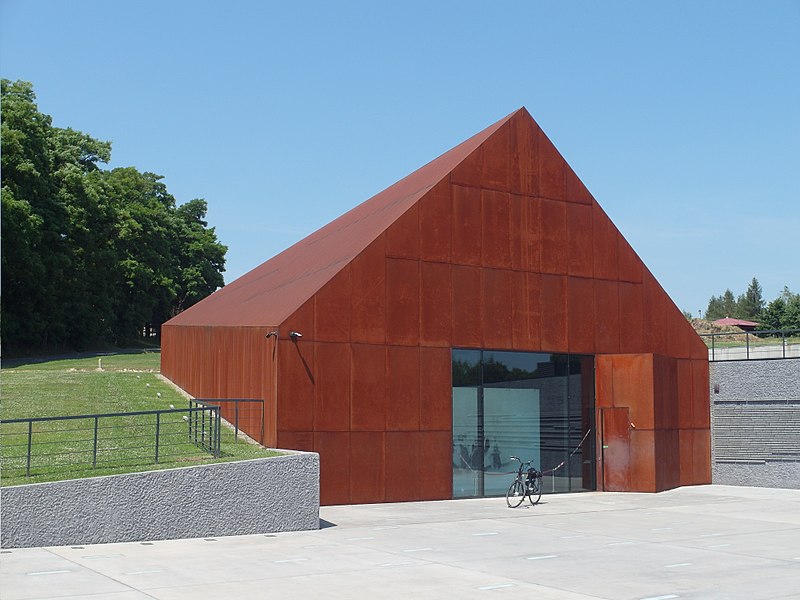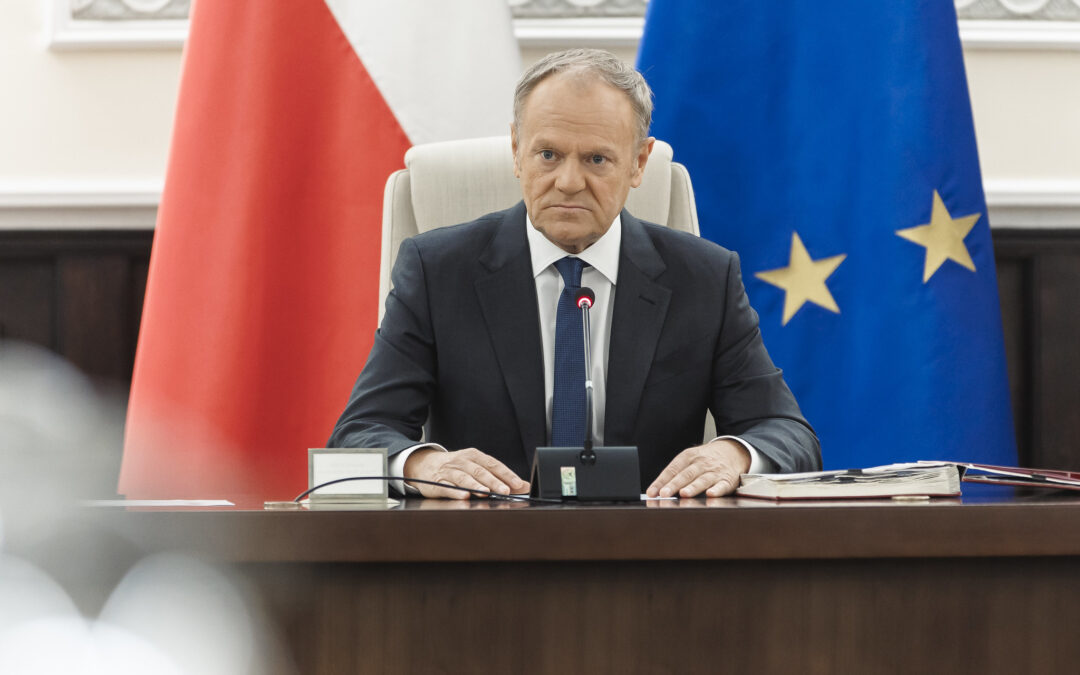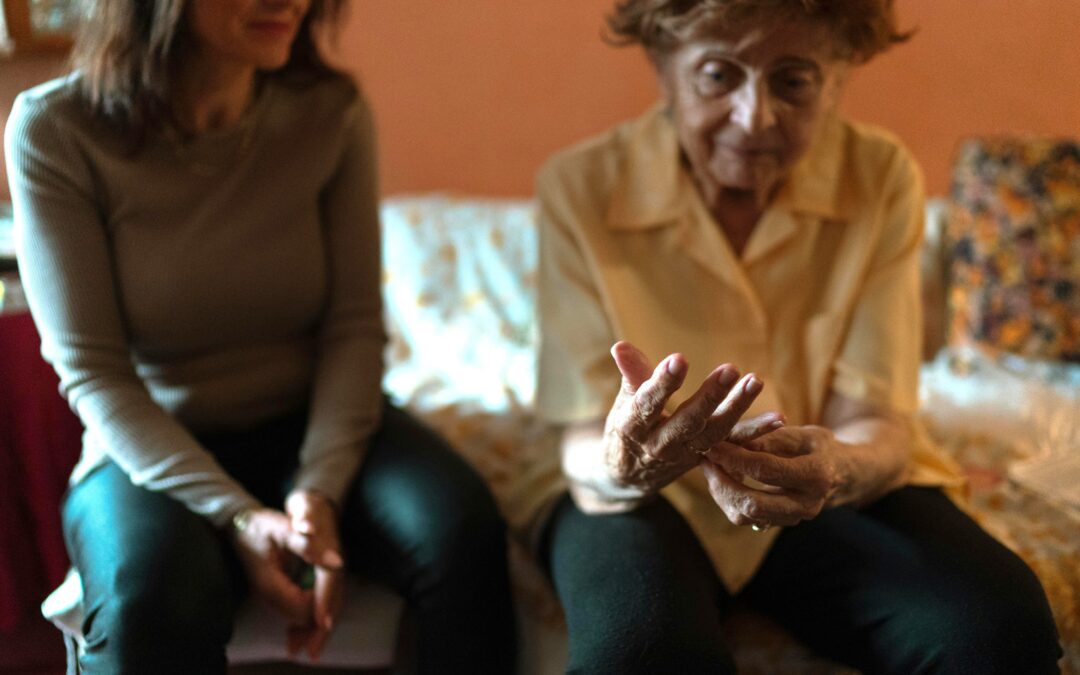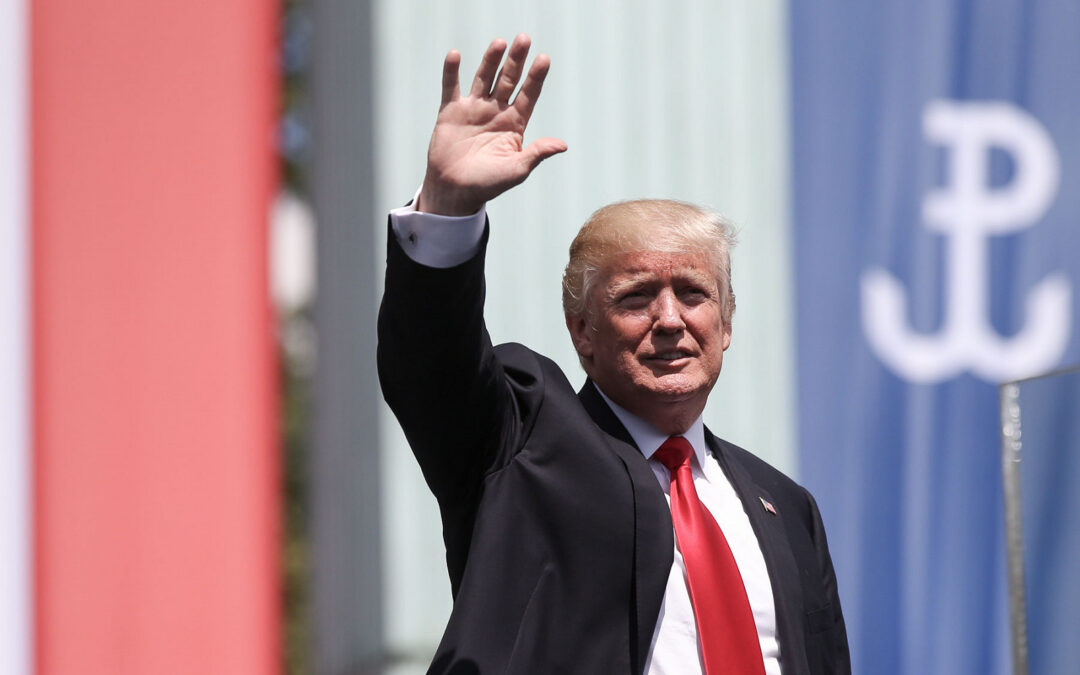By Stanley Bill
A new museum in the village of Markowa in the east of Poland honors the sacrifice of Poles who lost their lives in the attempt to save their Jewish neighbours from the Holocaust. The Ulma Family Museum of Poles Saving Jews in World War II is housed in the place where Józef and Wiktoria Ulma and their six children were murdered along with Saul Goldman, Gołda Grünfeld, Lea Didner and five other children by German gendarmes in 1944. Their tragic story symbolises the fate of hundreds of others who paid the ultimate price for kindness in Nazi-occupied Poland, where aiding Jews was punishable with death. In a recent ceremony, Polish President Andrzej Duda opened the museum in the presence of other politicians, religious leaders, journalists, and guests from Israel. Notes from Poland co-editor Stanley Bill attended the event. He reports on the museum, the ceremony, and Poland’s new politics of history.
The Ulma family’s sacrifice
In the second half of 1942, Józef and Wiktoria Ulma made the fateful decision to take in two Jewish families in the village of Markowa in Nazi-occupied Poland. The Ulmas hid the families in the loft of their small house, protecting them from the mass murder that had already commenced in the eastern zones of German occupation. They knew that the penalty for Poles who aided Jews in any way was death, and yet they did what they could to save the lives of their neighbours. After almost two years of shared life in cramped conditions, they were all betrayed by a local collaborator. On 24 March 1944, German gendarmes descended upon the house in the early hours of the morning. The Germans shot all the fugitive Jews, including the five children, then Józef Ulma and his heavily-pregnant wife, and finally the Ulmas’ six children, aged between one and eight years old. One of the Germans told the Polish villagers who had been assembled to witness the massacre: “This is what happens to Polish swine who help Jews”.
The tragic story contains a number of characteristic elements. Firstly, the self-sacrifice of the Ulmas is emblematic of the heroic efforts of a small proportion of the Polish population to help Jews under the German occupation. The Polish underground state supported these efforts, and, under its auspices, Żegota (the Polish Council to Aid Jews) organised various actions to help Jews, including the well-known campaign led by Irena Sendler to evacuate Jewish children from the Warsaw Ghetto. It often took large networks of people to save even a single Jewish individual.
But the story of the Ulmas also reveals that it only took a single individual – in this case, a member of the Polish auxiliary “navy-blue police” – to betray Jews and their protectors to the German occupying authorities. Even more tragically, after the massacre at Markowa, certain other Polish inhabitants of the village allegedly murdered the Jews they were hiding, presumably for fear of meeting the same fate as the Ulmas. Astonishingly, in this climate of terror, another 21 Jewish inhabitants of Markowa survived the war in the homes of other Polish neighbours.
The extreme circumstances of the German occupation provoked diverse reactions of fear, pity, cruelty, indifference, opportunism, but also of extraordinary courage. Józef and Wiktoria Ulma are among more than 6600 Poles to be honored as Righteous Among the Nations by the State of Israel for risking their lives to save Jews during the war. Many more have probably gone unrecognised. Although it is impossible to calculate precisely how many Poles were involved in assisting Jews – and even definitions of what counts as assistance vary – they may number in the hundreds of thousands, somewhere between 1-3% of the Polish population of the time.
Markowa and the politics of history
On March 17, President Andrzej Duda opened the Ulma Family Museum of Poles Saving Jews in World War II in a formal ceremony that included speeches from Chief Rabbi of Poland Michael Schudrich, Israeli Ambassador Anna Azari, the Head of the Polish Association of the Righteous among the Nations and the Polish President himself. The speeches were interspersed with musical performances of biblical texts and an audio-visual spectacle symbolically recreating the world of prewar Poland and the occupation. All of the speakers emphasised that both Jews and Poles had been victims of the Nazi occupation, pointing to solidarity between the two groups in the most appalling conditions and the preceding centuries of shared Polish-Jewish life that the Germans effectively brought to an end with the mass murder of Polish Jews in the Holocaust. Rabbi Schudrich placed a symbolic mezuzah at the entrance to the museum. President Duda’s speech culminated with the strong words that “whoever sows or stokes anti-Semitism tramples on the graves of the Ulma family, tramples on their memory”.
The museum itself is relatively small, springing from what is essentially a local and regional initiative. The centrepiece of the display is a symbolic recreation of the Ulmas house in Markowa, with pieces of period furniture giving a good sense of the simple living conditions. Around this core is a main exhibit including broader background on the German occupation of Poland, the Holocaust, and various illustrations of where and how Poles hid Jews. Most of the examples are from the local Podkarpacie region. A separate exhibit broadens the focus of the museum to present Polish aid for Jews in other parts of occupied Poland, including the work of Żegota, Irena Sendler, and members of the clergy. Significantly, this exhibit also includes two panels on Poles who betrayed Jews and their Polish hosts, adding some historical balance to the main narrative of Polish virtue in the most trying circumstances.
To a certain extent, the modest size and local focus of the museum seem incongruous with the national significance of the opening ceremony. Indeed, the presence of President Duda and a number of other prominent politicians from the ruling Law and Justice (PiS) party can only be understood in the context of the government’s new policy priority of “historical politics”. This means a concerted campaign both in Poland and abroad to propagate “the truth” about Poland’s history, which – in practice – implies a strong emphasis on positive stories to combat perceived negative stereotypes abroad and what government politicians have referred to as “the pedagogy of shame” within the country.
In this context, the museum at Markowa represents an opportunity to disseminate positive narratives of Polish-Jewish relations under the German occupation, perhaps in part as an antidote to the continued sensitivity and domestic controversy around the German-inspired pogrom perpetrated by a group of ethnic Poles against their Jewish neighbours at Jedwabne in 1943. Markowa is a counterbalance to Jedwabne.
Of course, it is right and just that Poles who risked their lives to save Jews from the Holocaust should be commemorated. Moreover, their stories ought to be better known throughout the world, as misrepresentations of Polish involvement in the Holocaust – perhaps most egregiously in the slanderous phrase “Polish death camps” – are still lamentably widespread. The truth of the occupation is that a small number of Poles collaborated with the Germans in the murder of Jews, despite sustained German attempts to encourage much broader local participation in certain areas. Others betrayed Jews to the occupiers. On the other hand, a small number of courageous men and women risked their lives to save their Jewish neighbours, despite all the personal risk this entailed. In between these extremes, the vast majority of the Polish population were passive witnesses to the genocide, exhibiting varying degrees of helpless pity, indifference or hostility.
Mixed Messages: President Duda on History
President Duda’s appearance at Markowa won a qualified victory for the government’s campaign of “historical politics”. His speech, the opening of the museum and the story of the Ulma family have received widespread attention from the international media. At the same time, much of this coverage has also referred to suspicions that the government’s intention is really to distort or whitewash Polish history and to expunge historical facts or narratives that may present Poles in a negative light. In this way, the Markowa museum has been directly linked to recent proposals to outlaw the phrase “Polish death camps” and to strip the Polish-Jewish historian Jan Tomasz Gross – who first brought the Jedwabne massacre to mainstream public attention – of his Polish state honors, as punishment for allegedly “anti-Polish” views. From this perspective, Markowa becomes a cover for Jedwabne.
These are legitimate concerns, but they do not make the museum project itself illegitimate. Overall, the exhibit probably gets the historical balance right. The emphasis is unsurprisingly positive, but the information about Poles who betrayed their Jewish and non-Jewish neighbours to the German occupiers offers another side to the story. Perhaps a reference to Jedwabne and the other wartime pogroms instigated by the Germans but perpetrated by Poles might also be helpful, though it is understandable that a museum dedicated to Poles who paid the highest price for their heroism should focus on the positive dimension of their sacrifice. The opening ceremony was generally respectful and well-produced, with the notable exception of Hebrew letters being inadvertently projected back-to-front during the audio-visual display.
President Duda’s speech was also not entirely bereft of historical balance, containing – admittedly oblique – references to the Polish identity of those who betrayed the Ulmas. More importantly, his central conception of historical “truth” implied – again, rather indirectly – a historiographical place for both negative and positive narratives, for Jedwabne as well as Markowa: “We must convey the truth about the Holocaust . . . the truth about heroism, and sometimes the sad truth about villainy”. The President’s strong words against anti-Semitism also attracted the effusive praise of Rabbi Schudrich who characterised this section of the speech as “one of the strongest condemnations, if not the strongest, of anti-Semitism by a Polish leader”.
Duda’s words reflect an aspect of his political milieu that sometimes surprises outside observers – namely, that the mainstream of the PiS party represents a form of Polish right-wing, Catholic conservatism largely unstained by anti-Semitism. This is a form of Polish conservatism that takes seriously Pope John Paul II’s condemnation of anti-Semitism as a grave sin. Duda’s wife is the daughter of the famous Polish-Jewish poet Julian Kornhauser. From the earliest days of this presidency, he has committed himself to a symbolic inclusiveness – for instance, lighting Hanukkah candles with Rabbi Schudrich in the Presidential Palace in Warsaw.
Nevertheless, there is also a more ambivalent side to Duda’s presidency and to PiS when it comes to the less glorious chapters in Polish-Jewish history. In May 2015, before the presidential elections, Duda opened a debate with incumbent Bronisław Komorowski with what might be described as a form of “dog-whistle politics”. In his first question of the debate, Duda attacked Komorowski’s statement from a 2011 commemoration of the Jedwabne massacre that “the nation of victims has also been a perpetrator”, arguing that such words were destructive to Poland’s good name and to what Duda called “real historical memory”.
The semantics of Komorowski’s statement remain open to critique, as it is questionable whether “the Polish nation” can be described as the “perpetrator” of the Jedwabne massacre. Individual Poles were responsible, along with the German forces in the town, and not any collective body that could be said to represent the Polish state or nation. Nevertheless, Duda’s troubling decision to commence his assault on Komorowski at such an important moment in the election campaign in this way sent a clear signal to those who would prefer not to confront any negative aspects of Polish history, and perhaps even to those who would deny Polish responsibility for the Jedwabne massacre. The recent decision of the President’s Office to examine the possibility of stripping Jan Tomasz Gross of his state honors is an unfortunate continuation of this dubious strategy.
PiS as Bulwark against Anti-Semitic Nationalism
PiS’s leading figures – including the party leader Jarosław Kaczyński, President Duda and others – are not anti-Semites. They have never explicitly mobilised anti-Semitic rhetoric in their politics. However, PiS’s historical politics are partly designed to appeal to those on the fringe of the party or among its supporters whose views on Polish-Jewish history and relations might be considerably less enlightened.
Paweł Śpiewak, director of the Jewish Historical Institute in Warsaw, describes this conflict in slightly different terms, as a direct clash between party discipline and nationalist elements within the party: “One thing is missing – anti-Semitism. PiS has not crossed that boundary. There are nationalists in the party, and no doubt anti-Semites as well, but so far discipline has prevailed, and the party hasn’t touched anti-Semitism”.
But where exactly has this “discipline” come from? As Jarosław Kaczyński has explained, it originally sprang from a combination of conviction and pragmatism in the earliest days of his political activity in newly-independent Poland after 1989. On the one hand, anti-Semitism was in itself morally wrong and harmful. On the other hand, populist appeals to anti-Semitic nationalism might also have cut his movement off from Polish intellectual elites and potentially have cut Poland off from the West. Therefore, they had to be excluded from his political programme. As a result, Poland’s most successful conservative party of the post-1989 period has generally distanced itself from anti-Semitic and other aggressively exclusive forms of nationalism.
For this reason, some political thinkers in Poland have argued precisely that Jarosław Kaczyński has protected Poland from a violent turn towards more extreme right-wing nationalist politics by capturing the Polish conservative imagination without resorting explicitly to the rhetoric of national hatred. In the realm of “historical politics”, PiS’s combination of party discipline and dog-whistle tactics has successfully appealed to all but the most extreme nationalist elements on Poland’s right wing. Consequently, openly anti-Semitic or radical nationalist ideas have had no space in Poland’s mainstream political scene. In the 1990s, Lech Wałęsa supposedly even claimed that the elimination of anti-Semitism from Polish political life was an achievement of Kaczyński’s first party, the Centre Agreement. Now that PiS is in power, this achievement comes at the cost of a “historical politics” that clearly seeks to downplay the darker sides of Polish history. Yet the line against open anti-Semitism has continued to hold.
Given Poland’s political history – and especially in the light of an interwar anti-Semitism associated with both right-wing nationalists and the Catholic Church – we should not underestimate the significance of a Catholic, right-wing politician making the kind of unequivocal condemnation of anti-Semitism that Andrzej Duda delivered at Markowa. The rumblings of Poland’s expanding nationalist fringe, along with developments in various other countries across Europe and beyond, tell us that we could do a lot worse than PiS’s light version of the nationalist politics of history.
Refugees and the righteous
But perhaps anti-Semitism is simply a comfortably irrelevant issue in contemporary Poland, where very few Jews live today. The real moral challenge for PiS and for Poland – and, indeed, for Europe – is that of the Syrian refugees. So far, the Polish response to this crisis has been driven for the most part by fear and insularity. During last year’s election campaign, Kaczyński suggested that refugees might bring dangerous diseases to Poland. Politicians further to the right have been even more inflammatory. The predictable result has been a rise in racist attacks in Poland. After the recent terrorist bombings in Brussels, Prime Minister Beata Szydło proposed that Poland might renege on its earlier commitment to accept 7000 refugees. Her stance seems to have widespread support among the electorate, where as many as 70% of Poles are opposed to accepting any refugees at all.
In Europe today, the demonised other is not the Jew, but the Muslim refugee fleeing the very same extremists who inspired the barbaric attacks in Paris and Brussels. In Poland, as elsewhere in Europe, some still argue for compassion against the tide of fear. The Polish Catholic Church has partly followed Pope Francis in his demands for Christian charity. Various media outlets have published critical responses both to the government’s apparent rejection of refugees and to the public support for a hard-line policy. One centre-right newspaper columnist was even moved to write that today it is the refugees who “await their Righteous”.
The Ulma Family Museum of Poles Saving Jews in World War II is a shrine to national heroism in the most terrible times. The recent opening ceremony with President Duda has thrust the museum into the centre of the government’s affirmative politics of history, a campaign designed to boost Poland’s image abroad and national self-esteem at home. But the Ulma family of Markowa may turn out to be more than just a cause for self-congratulatory pride in a sometimes heroic past. Instead, they may represent a stern challenge of compassion and courage thrown down to today’s Poles, an inspiration from the past to the would-be heroes of the future.
Main image credit: Wikimedia Commons/Mathiasrex (under CC BY-SA 4.0)
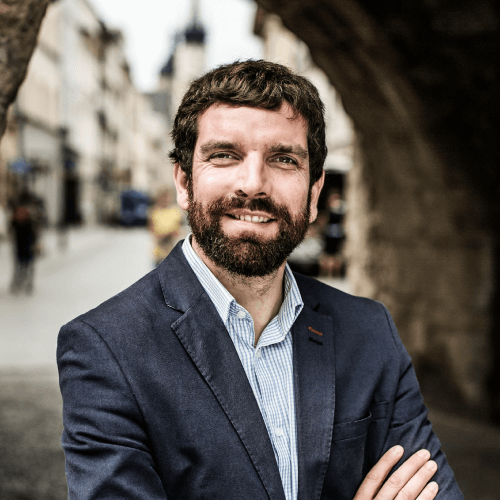
Stanley Bill is the founder and editor-at-large of Notes from Poland. He is also Professor of Polish Studies and Director of the Polish Studies Programme at the University of Cambridge. He has spent more than ten years living in Poland, mostly based in Kraków and Bielsko-Biała.
He is the Chair of the Board of the Notes from Poland Foundation.
